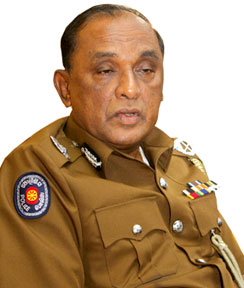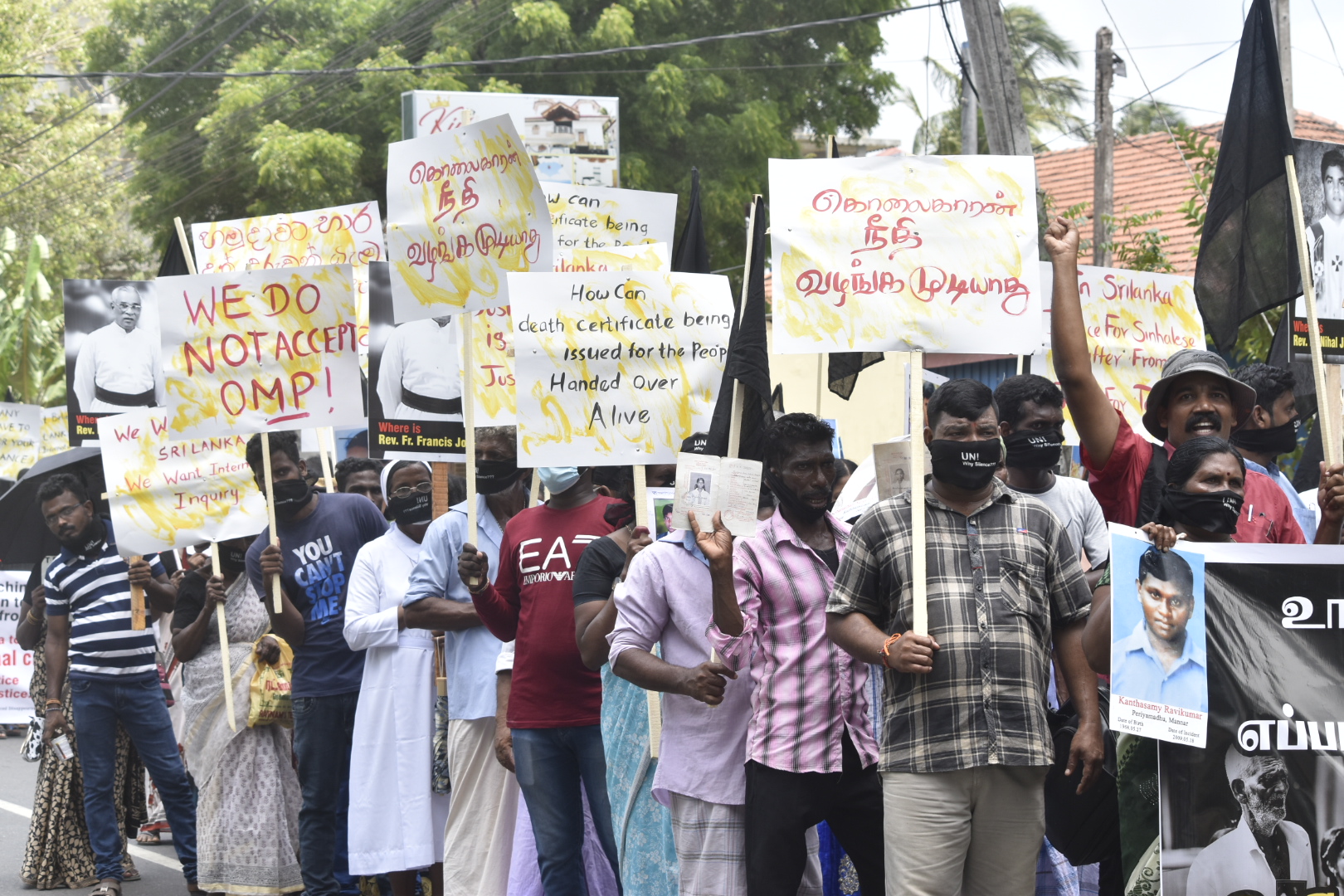
The International Truth and Justice Project (ITJP) said the recent appointment of war time police chief to the Office of Missing Persons (OMP) "completes the militarisation of this transitional justice mechanism" and "obliterates any chance of truth and justice" for Tamil families of the disappeared.
On May 20, the Parliament Council appointed former Inspector General of Police, Hapu Arachchige Jayantha Shantha Kumara Wickremaratne as a member of the OMP.
"It’s hard to make this up – the man who was in charge of three police units named by the United Nations investigation as involved in mass enforced disappearances at the end of the war is now investigating the disappearances himself," ITJP's Executive Director, Yasmin Sooka, said in a recent press release.
"This is a top state official who is at risk of universal jurisdiction cases if he travelled abroad for his command role in gross violations of human rights like systematic police torture,” Ms Sooka added.
The OMP was established by the previous government to investigate the tens of thousands of cases of missing and forcibly disappeared persons. However, Tamil families of the disappeared remain deeply sceptical of the mechanism as it lacks independence and for its inability to prosecute and has disregarded the continuous protests by the relatives.

File photograph
Families have expressed that the office is inadequate for its purpose as it had not provided them with assistance in any way and have continuously demanded international intervention to deliver truth, justice and accountability.
The ITJP stated that they will write to the UN Peacebuilding Fund and international donors asking them not to fund the office which has become "a vehicle for impunity designed to cover up the Sri Lankan government’s past crimes."
According to a dossier of evidence released by ITJP in 2019, Wickremaratne alongside the then Sri Lankan Army Commander Sarath Fonseka, were accused of threatening journalists on the island in 2009.
In June 2009, following the abduction and assault of a Sinhala journalist, Poddala Jayantha, in Colombo, Wickramaratne took part in a disinformation campaign which incited hatred against journalists.
Wickremaratne is also accused of derailing the investigation into the murder of former Sunday Leader Editor Lasantha Wickrematunge, a staunch critic of then President Mahinda Rajapaksa, who was gunned down in Colombo in 2009. In March 2018, Wickremaratne was questioned by the Criminal Investigation Department (CID) in connection with Wickremetunga's murder. He was asked about a notebook belonging to Wickrematunge that had gone missing while in police custody.
Following the announcement of Wickremaratne's appointment to the OMP, Ahimsa Wickrematunge, daughter of the slain journalist, tweeted:
As IGP, Jayantha Wickremaratne derailed investigations into my father’s murder. Appointing him as @ompsrilanka Commissioner proves @GotabayaR’s contempt for victims of atrocities. Heartbreaking for victims of #enforceddisappearances @SP_Eknaligoda & others still seeking answers. https://t.co/nGJEQu6J2f pic.twitter.com/EeNtAQ1iXP
— Ahimsa Wickrematunge (@awickrematunge) May 30, 2021
The Office of Reparations, which was also established under the previous government, has also been militarised by the appointment of retired Major General Waduge Palitha Piyasiri Fernando, a close ally of President Gotabaya Rajapaksa.
A presidential commission set up under the last government recommended that Major General Fernando, and Gotabaya Rajapaksa, should be charged for their alleged role in corruption and misappropriation of funds amounting to US $62 million in a floating armoury contract.
“Families of the Disappeared in Sri Lanka cannot safely engage with transitional justice mechanisms that include the same security officials in power at the time the violations took place. The very existence of these bodies poses a major witness protection risk,” said Ms. Sooka.
Read the full press release here.
